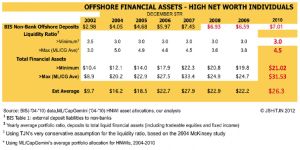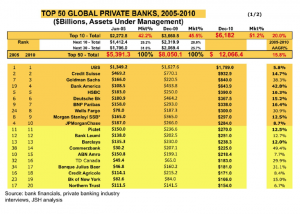I have never doubted that Hezbollah and/or Iran could be behind the attack in Israeli tourists in Burgas, Bulgaria. Certainly, it is one of the few attacks blamed on one or the other in the last year that exhibited the competence we expect from Hezbollah.
That said, I’ve been struck by the vary careful insistence on the part of both Dianne Feinstein and John Brennan that they have seen no proof to link Hezbollah or Iran to the attack.
Israeli intelligence sources claiming to protect the very secret intelligence they are leaking have offered this claim as evidence.
Israeli intelligence has evidence of many telephone calls between Lebanon and Burgas in the two months before the bombing, according to a senior government official who spoke on the condition of anonymity because the information is classified, with the volume intensifying in the three days leading up to it.
But they are no more prepared to expose the details of their counterintelligence work publicly than the attackers are to claim responsibility. “We know the sources in Lebanon,” though not the identity of those on the other end in Bulgaria, the official said. “They shouldn’t know that we know the numbers in Lebanon.”
Nevertheless, in spite of the fact that it was otherwise sourced to press reports, this laughable press conference announcing the What’s-Old-Is-New sanctions against Hezbollah on Friday made no mention of the new claim; it discussed the ties between Hezbollah and Burgas this way:
And we are working to assess the facts and with our partners to discover who was responsible. And although the investigation continues, and we are not in a position to make a statement about responsibility, the attack does resemble Hezbollah’s plotting earlier this year.
They didn’t mention the calls–or even the A1 cutout report of the calls–at all.
Which is notable given that at least four journalists at the press conference asked what was new behind the sanctions on Hezbollah. Josh Rogin summarizes the absurdity of imposing sanctions on a group that is already under sanctions that have the same effect.
The Cable asked both officials if designating Hezbollah for sanctions, which freezes the group’s U.S.-based assets and bars Americans from doing business with Hezbollah, has any added concrete effect if done twice. They said the added effect is in the court of public opinion.
“It will put the group in a more difficult situation, and, I think, will make them think long and hard before they continue this campaign in which the Syrian people are being brutalized. So we do see very concrete benefits coming from this designation,” said Benjamin. “Whether they will be in the area of financial sanctions or not remains to be seen, but in terms of casting a bright light on what the group is doing, I think that’s vitally important.”
So the Treasury Department doesn’t have to actually do anything to enforce the new designation it wasn’t doing already, and Hezbollah doesn’t feel any additional direct pain.
In any case, this is what we’ve come to. Treasury Under Secretary for Terrorism and Financial Intelligence David Cohen admits that these sanctions are about exposing a purportedly new role from a terrorist organization that has pretty much played the role of supporting Syria for decades.
But the purpose of our designations, whether it’s the Hezbollah action today or any of our other designations under our authorities, is not solely focused on the immediate financial impact, but as Ambassador Benjamin just expressed, to expose the activity of the party that is being designated for the conduct that has led to the designation.
And yet–even as Adam Entous refuted the government’s claims based on WSJ’s reporting–the government refuses to offer no more than press reports.
I really can’t give you any greater detail than what we’ve put forward in the press release and in my statement this afternoon about the activities of Hezbollah in Syria.
[snip]
This is not a matter of idle speculation or press reports.
[snip]
I was just going to say, look, we’re obviously very sensitive here to issues of sources and methods and we’re not going to divulge anything that shouldn’t be divulged.
[snip]
I think we have put out as much detail as we are able to put out with respect to Hezbollah’s activity in Syria.
Our war by vacuous press release, all justified in the guise of protecting sources and methods, is rapidly losing all credibility.
It feels like the Iraq War campaign again.


